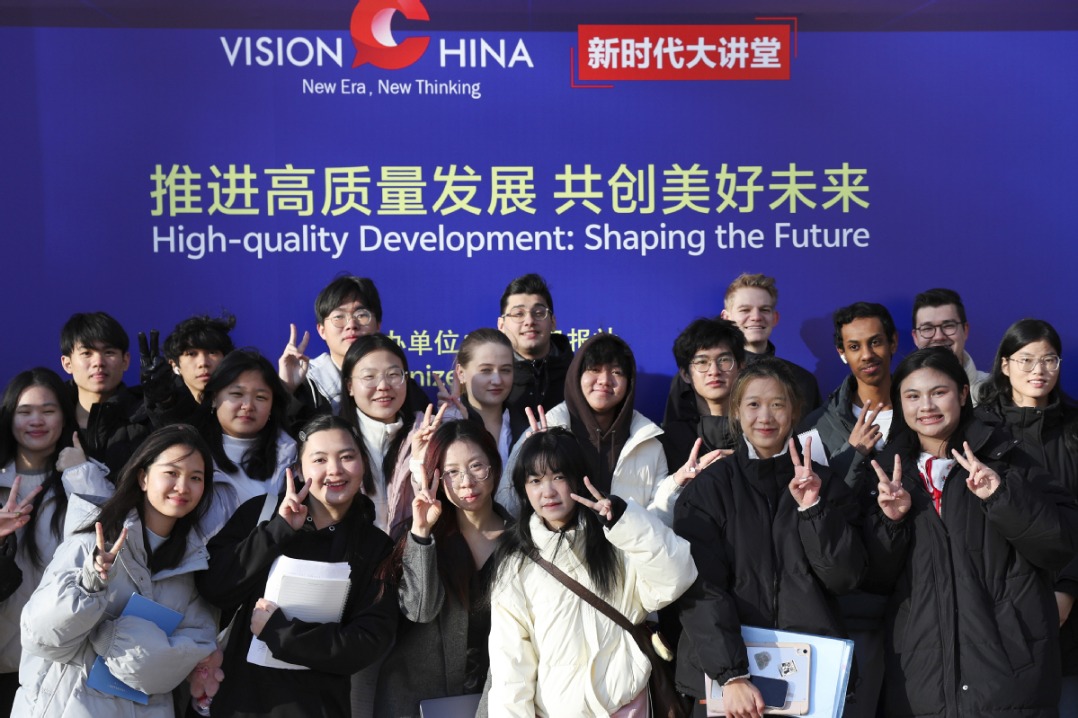Key takeaways from Xi's state visit to Vietnam

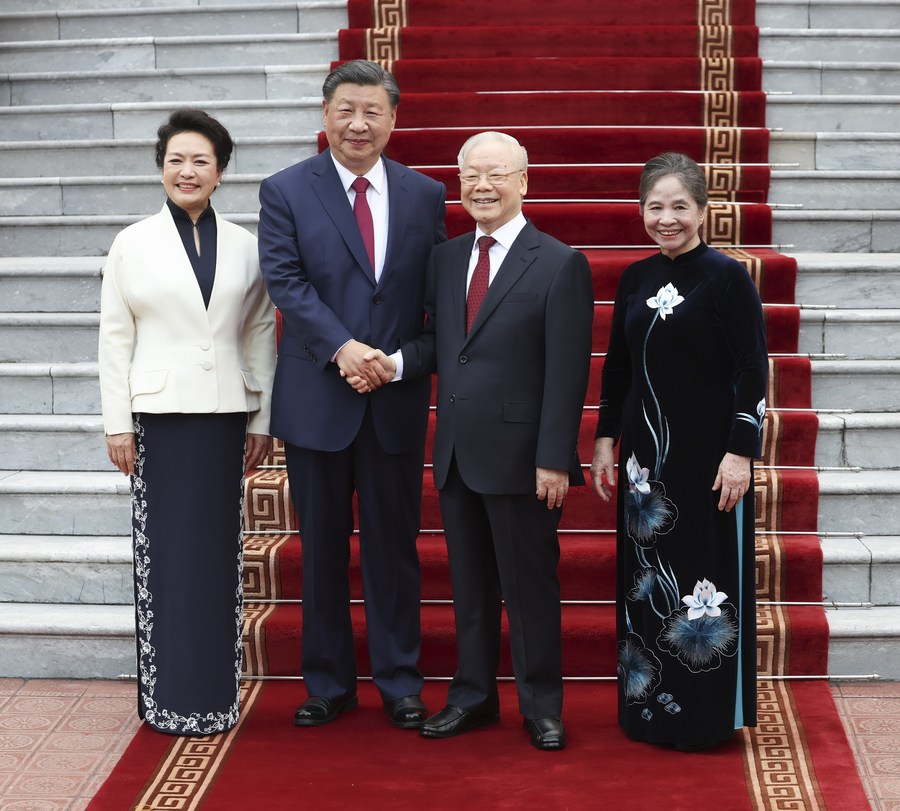
BEIJING -- Xi Jinping, general secretary of the Communist Party of China Central Committee and Chinese president, paid a state visit to Vietnam from Tuesday to Wednesday.
During the visit, the two sides issued a joint statement on further deepening and elevating their comprehensive strategic cooperative partnership and building a China-Vietnam community with a shared future that carries strategic significance.
According to the statement, the following is a summary of the main outcomes of the visit.
SUPPORT FOR CHINA-PROPOSED INITIATIVES
Vietnam supports building a community with a shared future for mankind, the Global Development Initiative, the Global Security Initiative and the Global Civilization Initiative.
These proposals and initiatives are aimed at safeguarding the common interests of humanity and committed to promoting peace, justice and the cause of progress for people of the world, reflecting the aspiration of people from all countries to build a better world.
China and Vietnam agree that the development of relations among countries should conform to the UN Charter, international law, and basic norms governing international relations.
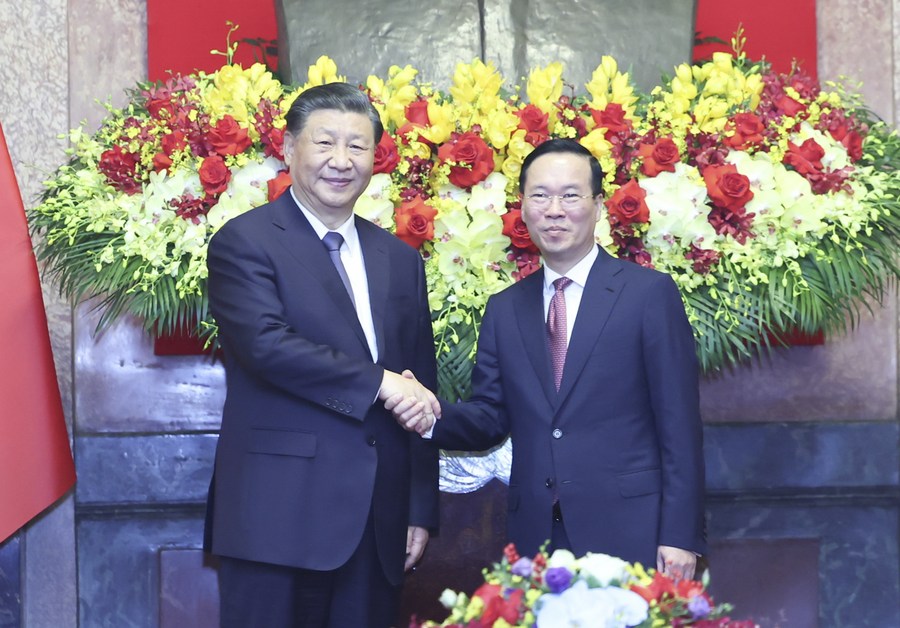
SUPPORT FOR VIETNAM'S PROSPERITY, DEVELOPMENT
China has reiterated its support for Vietnam's prosperity and development, as well as its people's well-being.
China supports Vietnam in building a strong and independent economic system and promoting the cause of "Doi Moi" (renewal), industrialization, and modernization in a coordinated manner.
China also supports Vietnam in reaching full international integration and developing extensive and friendly foreign relations, so that it can play a more important role in regional and world peace, stability, development, and prosperity.
TO STEP UP HIGH-LEVEL CONTACTS
China and Vietnam agree to continue stepping up high-level contacts between the two parties and countries through such forms as exchanges of visits and letters, sending special envoys, hotlines, annual gatherings and meetings on multilateral occasions.
The two sides also agree to conduct timely strategic communication on major issues of bilateral relations and international and regional situations of common concern, and provide strategic guidance for sound and stable development of relations between the two parties and countries in the new era.
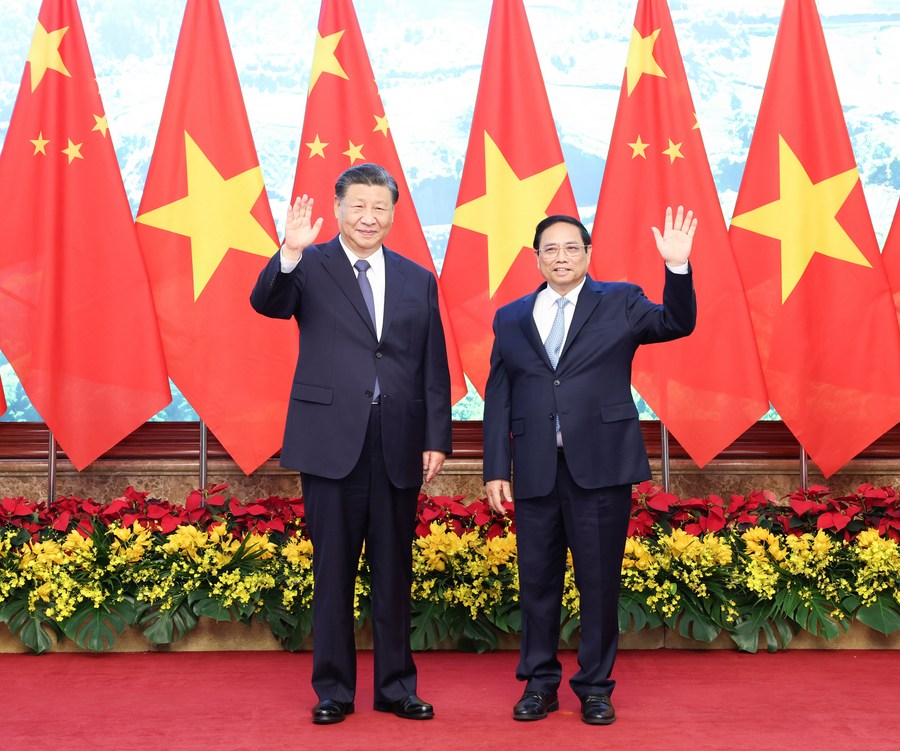
TO STRENGTHEN DEFENSE COOPERATION
The two sides agree to promote high-level exchanges between the militaries of both countries, and make good use of such channels as border defense friendly exchanges, defense and security consultations and defense ministry hotlines.
Both sides will further strengthen cooperation in the defense industries, joint exercises and training, military medical and health services, UN peacekeeping and non-traditional security fields.
They will also continue to deepen border defense cooperation, continue to carry out joint patrols in the Beibu Gulf and mutual visits of warships, and deepen cooperation and exchange mechanisms between their navies and coast guards.
TO STRENGTHEN SECURITY COOPERATION
Both sides will enhance cooperation in fighting terrorism and telecom network fraud, as well as in entry and exit control, immigration, illegal entry and exit, and hunt for fugitives.
The two countries will also strengthen intelligence exchanges as well as experience sharing and cooperation in fighting external interventions and secessions, and guarding against reactionary and hostile forces' attempts of "peaceful evolution," "color revolution" and separatist activities.
Both sides also agree to strengthen cooperation in combating violations of religious and foreign NGO management laws.
TO EXPAND BILATERAL TRADE
The two countries will give full play to the role of the Regional Comprehensive Economic Partnership (RCEP) and the China-ASEAN free-trade zone, and enhance cooperation on the platforms of the China International Import Expo, the China-ASEAN Expo, the China Import and Export Fair to expand exports of each other's competitive products.
China will actively promote the access procedures for Vietnamese agricultural products including fresh coconuts, frozen fruit products, oranges, avocados and other fresh fruits, medicinal plants and meat products, while Vietnam will actively promote the import of Chinese sturgeon.
Vietnam supports China's accession to the Comprehensive and Progressive Agreement for Trans-Pacific Partnership on the basis of meeting standards and procedures. The two sides will work together to well implement the RCEP and promote regional economic connectivity.
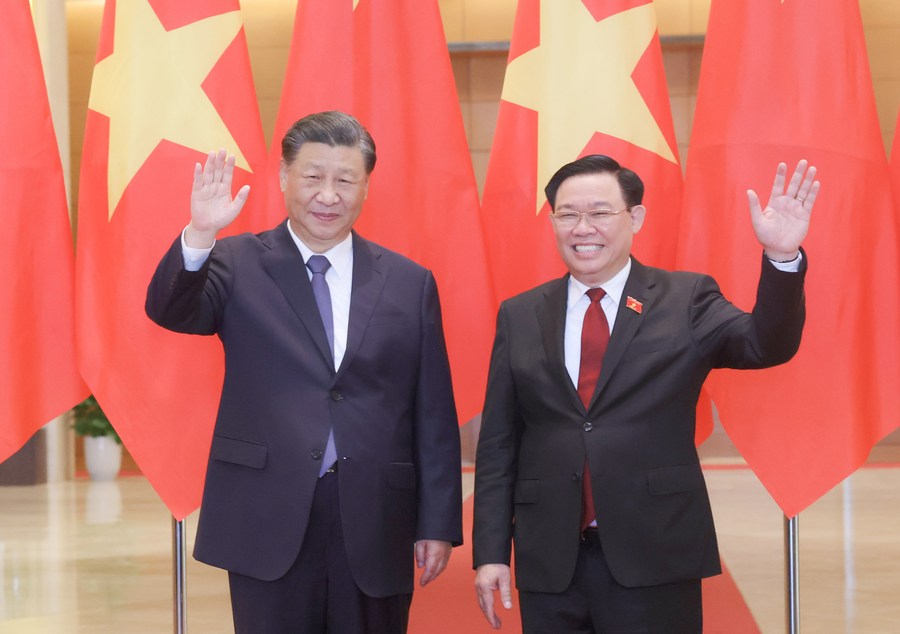
TO PARTICIPATE IN BUILDING GLOBAL CLEAN ENERGY PARTNERSHIP
China and Vietnam agree to actively participate in building the Global Clean Energy Cooperation Partnership.
The two sides agree to deepen cooperation in areas such as biodiversity conservation, climate change mitigation, and new energy vehicles.
China welcomes Vietnam's participation in activities related to the Belt and Road Initiative International Green Development Coalition.
SUPPORT FOR ESTABLISHING AGENCIES
China supports Vietnam in establishing a consulate general in southwest China's Chongqing Municipality.
Vietnam supports China in building a cultural center in Vietnam, and China welcomes Vietnam's establishment of a cultural center in China.
TO SEEK LASTING RESOLUTION OF MARITIME DISPUTES
Leaders of the two countries held an in-depth and candid exchange of views on maritime issues during the visit, with both sides stressing the need to better manage and actively resolve maritime disputes, so as to safeguard peace and stability in the South China Sea and the region at large.
Both sides agree to actively seek a basic and long-term resolution which is mutually acceptable and conforms to the agreement on the basic principles guiding the settlement of sea-related matters between China and Vietnam as well as international law including the United Nations Convention on the Law of the Sea.
The two sides agree to continue the comprehensive and effective implementation of the Declaration on the Conduct of Parties in the South China Sea, and to conclude a substantive and effective Code of Conduct in the South China Sea based on consensus through consultation.
They also agree to refrain from actions that could complicate the situation or escalate disputes, and jointly maintain maritime stability.


















